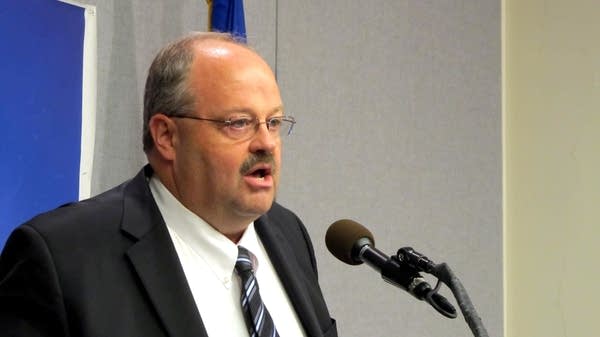House DFL-ers say they want property tax relief

The tax debate at the State Capitol this session is expected to include proposals aimed at lowering property taxes.
Democrats in the Minnesota House have already introduced a property tax refund measure among their early, priority bills. If passed, it would allow House DFL leaders to follow through on one of their big campaign promises by proposing some direct property tax relief to middle class homeowners, and renters.
The bill, introduced by state Rep. Jim Davnie, DFL-Minneapolis, would expand the Renter's Credit and the existing Homeowner Property Tax Refund, which paid out about $272 million to 363,000 Minnesotans in 2011.
"There's some income thresholds in the existing property tax refund program. We're tweaking those slightly so that we expand the program and people get a little bit more in property tax relief," Davnie said of his bill, the one introduced this session. "We've seen property taxes going up and up for a lot of Minnesotans, and we want to pull those back."
Create a More Connected Minnesota
MPR News is your trusted resource for the news you need. With your support, MPR News brings accessible, courageous journalism and authentic conversation to everyone - free of paywalls and barriers. Your gift makes a difference.
Davnie's plan would make people with higher household incomes eligible for the refunds. It would also increase the amount of the refunds and aim to boost participation by requiring the state Department of Revenue to notify homeowners that they are eligible for refunds. Davnie estimated the cost of the expansion at nearly $100 million, which he expects to be part of the final tax package passed this session.
State Rep. Greg Davids, R-Preston, said he too favors lower property taxes, but he believes the DFL proposal would be nothing more than a tax shift. Davids said he's worried that Democrats will want to pay for the refunds through an income tax increase.
"That's very, very problematic because if you increase income taxes, you have less money in the economy to create jobs," Davids said. "It's very problematic on where they're going to get the money from."

Next week, Gov. Mark Dayton is expected to propose a comprehensive reworking of the tax code along side of his two-year budget plan. Dayton's revenue commissioner, Myron Frans, has spent most of the past year highlighting an imbalance among the current sources of state tax revenue, due largely to a 20 percent growth in property taxes statewide over the past decade.
Frans would not list the details of the governor's tax plan. But he did say the House property tax refund proposal was among many ideas considered.
"When we laid everything on the table that was clearly one of the things that we laid on the table," Frans said. "How can we deliver property tax relief to people that will really be effective and make a difference? Those programs do offer opportunities, but they also are somewhat limited in the way that they do that.
"The challenge is, are those programs sufficiently broad enough to provide the kind of property tax relief the people of Minnesota are looking for?"
DFL leaders in the Minnesota Senate did not include property tax relief among their first batch of bill introductions. It's an issue they still plan to take up. Senate Tax Committee Chair Rod Skoe said he agrees that property taxes are too high.
"It's a very regressive tax, not related to one's ability to pay," said Skoe, DFL-Clearbrook. "So, I think we should look at making our tax system more fair. To me that means tamping that leg down a little bit."
But Skoe is not ready to talk specifically about what bills might or might not come forward in his committee. He said he will wait for the governor's tax proposal, and then let the legislative process play out.
• Follow Tim Pugmire on Twitter: http://www.twitter.com/timpugmire
